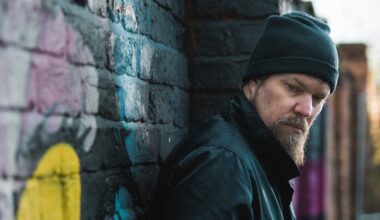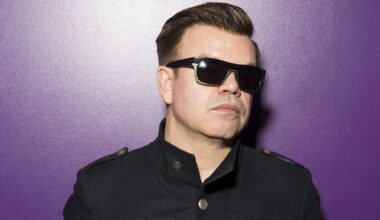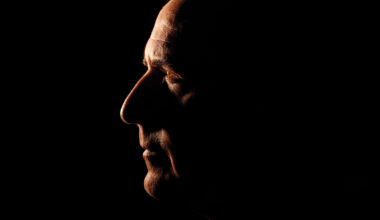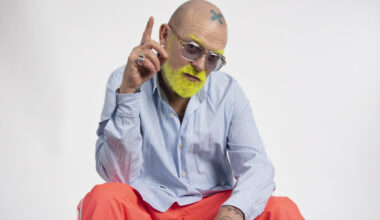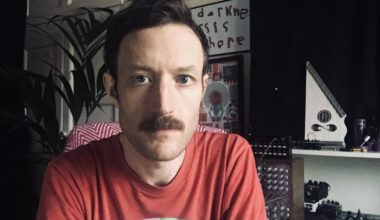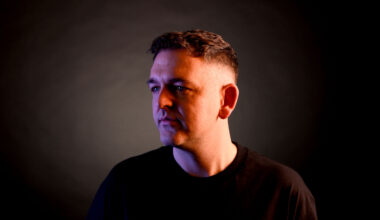BBC broadcaster and one half of UNE with remixer and DJ Paul Langley, Mark Radcliffe talks us through his formative influences
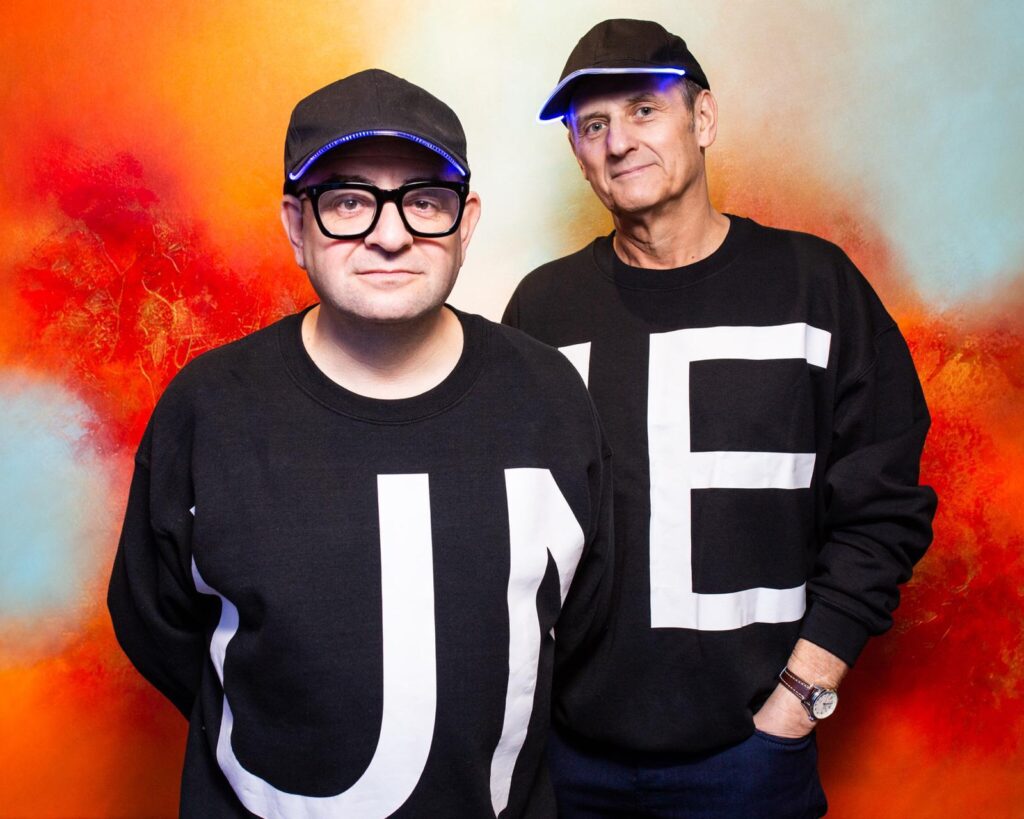
The Synth Continuum
“When I was at school, we were prog rockers, Genesis rather than Yes, but more important would have been Tangerine Dream. They played in cathedrals with huge banks of modular synths and I was fascinated that you could have a group without drums and guitars. There were electronics in a lot of the other music we were listening to, like Hawkwind, or Eno and Roxy. ‘What’s he doing? He’s playing something, but there’s no keyboard on it!’. There was Cabaret Voltaire and The Human League, Robert Rental and The Normal who were picking up the baton from Tangerine Dream and Kraftwerk with this really primitive, basic electronica. I distinctly remember buying ‘TVOD’ at Virgin Records in Manchester and thinking, ‘This changes everything’. People might associate me with folk rock, but I’ve always loved electronic music and its ceaseless drive into the future.”
Kraftwerk
“The first Kraftwerk song that really made me think, ‘This is pop music’, would be ‘Autobahn’, which is an extraordinary record. There are 20 minutes of car horns parping and it became a Top Five album in the UK and America! There was also the Beach Boys pastiche in there too, it was really conscious and playful. That playfulness was definitely inspiring in terms of UNE.
“It was an honour to get to interview Kraftwerk a long way back. I’ve met all of the real Fab Four! They came with their bikes on the plane from Düsseldorf then cycled into Manchester from the airport. It’s only about eight miles, but we were like, ‘You cycled all the way from the airport!?’. People cycle that distance to work now, don’t they? ”
The Power Of Bowie
“If I was told I can take the records of one artist to my desert island it would definitely be Bowie, without hesitation. The work he did with Eno is key within that. His refusal to stay in the same place, to keep moving on is endlessly inspirational to me. Bowie and Eno seemed to be always forward-facing. Having had my recent brush with cancer, looking forwards is something I’m doing now more than any other time in my life. We’ve all got limited time so why do the same things over and over again? So UNE is just about trying to apply that in my own small way.”
Factory Records…
“Factory was like a lightbulb coming on in Manchester. Tony Wilson, more than anyone, gave people like me the confidence to say, ‘We can do it here. We don’t have to go to London to make it’. When I got a job at Radio One I did think long and hard whether to go or not. Tony famously landed a London TV job, got halfway down the motorway before turning around and coming back! I remember going to start at Radio One in 1983 and getting to Scratchwood Services and thinking about Tony, thinking, ‘I shouldn’t be doing this’.”
… and Anthony H Wilson
“I got to know Tony well and he was massively enthusiastic. I mean, he was pretentious and overbearing by his own admission, but he was fantastically empowering and he was a kind of glamorous figure too. He almost got the post-punk scene started single-handedly, but he never stopped having that flouncy hair or got rid of his baggy 80s TV suits. When I started on Piccadilly Radio, Tony used to supply me with records. I’d go down to the Factory offices and root through for stuff. I was member number 16 or 17 at The Haçienda too. It was terrible in the early days – empty, freezing cold, bad sound.”
Art Attack
“Art is as important to me as music. I’m a massive fan of Marc Chagall. I love his uniquely distorted view of reality. There’s a picture on my desk of him and his wife, Bella, in an embrace floating over a townscape. I’m Mark – sadly with a ‘K’ – but my wife is called Bella too. If we’ve ever got a little bit of money, we’ll buy art, which sounds grand, but it’s just things we love and they’re not fortunes. There’s an artist called Michael Cook who I like. He works as Hallowed Art and I am fascinated by his use of colour. I often think of music in terms of colour. The first track on the UNE album is called ‘Boketto’ and that’s a blue and yellow song. ‘Boketto’ is a Japanese word that means gazing absent-mindedly into the middle distance… which I like to do a lot.”
John Peel
“I never expected to know him and that was an honour for me. The thing with Peel was that it wasn’t just the music, it was that he was a very different kind of DJ to the likes of Tony Blackburn. I know Tony, he’s a really nice man, but I was never going to be Tony Blackburn, but I might have been John Peel.”
DAF
“‘Kebab-Träume’ is incredible, that brutal synth sound with almost deafening drums. They were a real leap forward. I saw them at Rafters in Manchester and it was blisteringly loud. It’s like the sound of totalitarianism really, isn’t it? They were stern with vicious haircuts, and like Krafwerk, playing with ideas and clichés about German history and culture.”
Giorgio Moroder
“There’s a parallel history of electronic music with people like Patrick Cowley, Space and particularly Giorgio Moroder. Disco is a very different tributary, but Moroder clearly made pop music and he made it sexy. It’s impossible to underestimate what he did, he’s an undeniable influence on almost everyone. ‘I Feel Love’ is almost a world in itself. He’s still making records and doing gigs at 79. That’s so inspiring to me.”
UNE’s ‘Lost’ is out on Middle Of Nowhere
